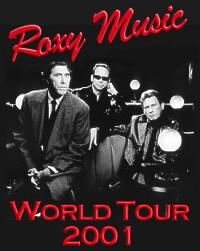
| INTERVIEWS Still Decadent After All These Years Edo Reents. Frankfurter Allgemeine Zeitung, June 2001 |
![]() he
term "decadence" is explained in Friedrich Nietzsche's criticism
of Richard Wagner. Initially an admirer of the composer, Nietzsche eventually
found the composer's poses completely unbearable, a nuisance that would
devastate the world of art, the only world Nietzsche knew. The philosopher
claimed that decadence arose when the power of art did not emanate from
the work in its entirety, if parts became independent at the expense of
the whole. Decadence, Nietzsche said, was a combination of artificial
and unnatural aspects. One could also say: Showiness instead of greatness.
he
term "decadence" is explained in Friedrich Nietzsche's criticism
of Richard Wagner. Initially an admirer of the composer, Nietzsche eventually
found the composer's poses completely unbearable, a nuisance that would
devastate the world of art, the only world Nietzsche knew. The philosopher
claimed that decadence arose when the power of art did not emanate from
the work in its entirety, if parts became independent at the expense of
the whole. Decadence, Nietzsche said, was a combination of artificial
and unnatural aspects. One could also say: Showiness instead of greatness.
The British band Roxy Music has been labeled decadent from its very beginning in 1971. The musicians had no problem with this tag, as their "decadent" rock, which was tastefully stylish and always on the brink of campiness, had something new to offer, at least to start: a sophisticated mixture of rock, soul, jazz and classical ballads. Particularly band leader and singer Bryan Ferry, a first-rate dandy, undermined the cliché of a rock musician without opposing it. He knew how to trigger success with an image that helped Roxy Music set trends for a whole decade -- not only with their songs.
At a time when sloppily dressed guitar heroes set the tone, Roxy Music brought style to the world of rock with their fantastic outfits. Ferry and his musicians proved that musical competence did not necessarily have to suffer, even if you devoted much of your creativity to your wardrobe. They dressed like transvestites, but their wide-ranging repertoire from kitsch to hard rock appealed to everyone. Roxy Music embodied postmodernism almost perfectly without appearing outdated. They freely admitted that it was impossible to create something really new in rock music, but for them this was no reason for defeatism. On the contrary: Their glamorous outfits and ambivalent behavior were provoking and progressive.
After producing eight studio albums, the band split up in 1983, at the height of its commercial success. In spite of its outstanding solo performers, the group had slowly become Ferry's backup band. Once more the timing proved the group's sense of style. Roxy Music realized that the musical transition between the 1970s and the 1980s had rendered their balance of kitsch and clarity unnecessary. They had nothing to do with the new decade. They had just ushered it in.
Reinforced by excellent backup musicians, Roxy Music is back: singer
Bryan Ferry, saxophonist Andy Mackay, guitarist Phil Manzanera and percussionist
Paul Thompson, all of them over 50. When they gave their first concert
in Germany after 18 years, they did not have a new album to introduce,
but an impressive past behind them. Their performance at the Olympiahalle
in Munich on June 26 was unexpectedly flawless. It was lavish, ecstatic
and carefully balanced -- a great triumph, which one can only hope will
repeat itself in September, when Roxy Music returns to Germany on its
2001 world tour.